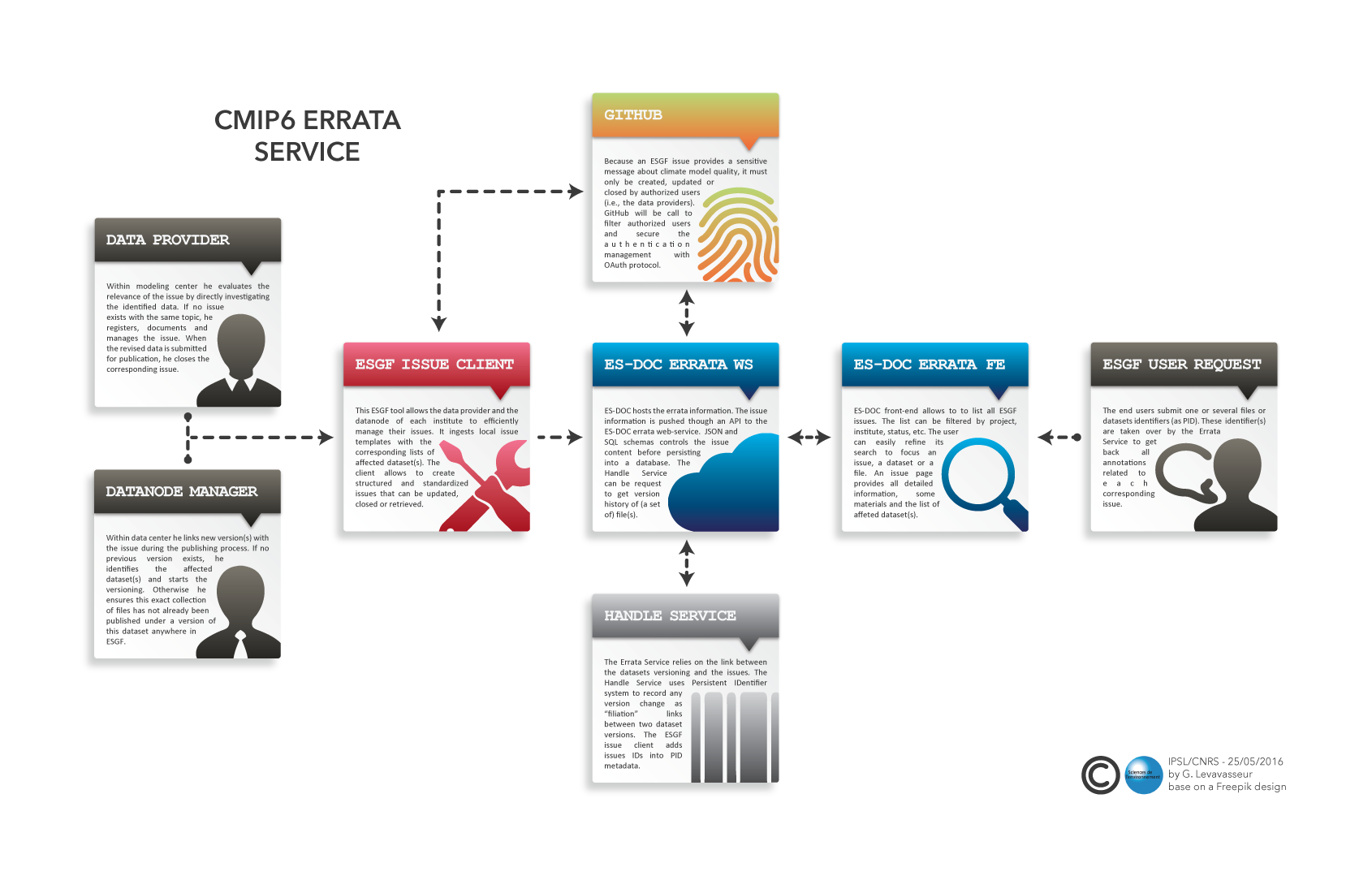Inevitably, post-simulation dataset errata are identified that need to be documented and reported to the community. Such errata may affect output across an entire model, an entire experiment, or perhaps an entire variable. Under the auspices of ES-DOC, the groups will be provided with the tools they need to report, search & view all dataset errata.
 Publication
Publication
Whenever a data provider wishes to create an issue, he/she initially fills in an issue json file with fields describing what the issue is about and what datasets are affected. Then, using the ES-DOC Errata command-line client, the provider pushes the issue to the ES-DOC issue-tracker archive. Providers will need to obtain and configure credentials in order to get the issue created, updated or closed.
Alternatively, users may rely on the upcoming errata-forms features, using online forms for simplified issue management.
Search & View
Groups can search & view published errata via a simple to use web application which support two types of search:
Faceted: one can search by various facets such as institute, model, experiment, variable, severity & status.
PID: one can enter persistent identifers, i.e. PIDs. Each PID is resolved to the list of affected datasets and by extension the related errata.
PID Service Integration
Upon either creation or update of an issue, the errata service updates the PID handles accordingly in an asynchronous fashion. Through a federation of RabbitMQ server, the errata metadata is hosted on the dataset level, in the appropriate handles identified by the PIDs.
This enables the errata service to retrieve the information stored when requested and reconstruct the version tree for either datasets or files.
Screencasts
The ES-DOC team has prepared a series of screencasts to help you get upto speed – please visit the ES-DOC YouTube channel.
Further Information
For further information please refer to the full documentation of the ESDoc-Errata-Client project @ https://es-doc.github.io/esdoc-errata-client/
